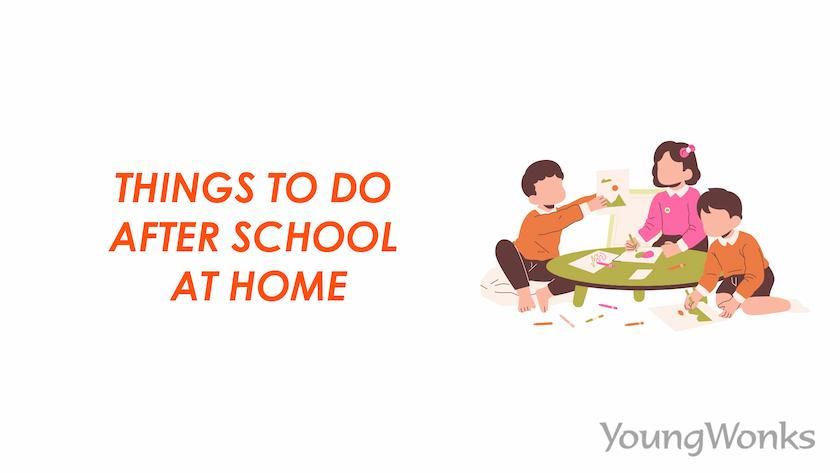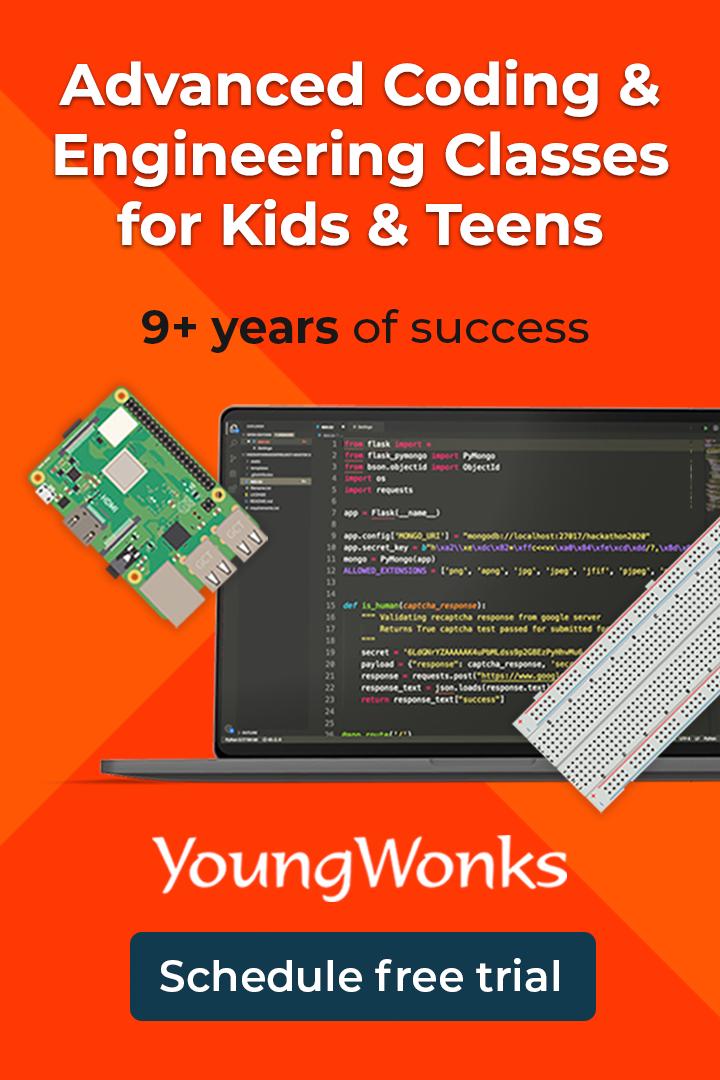Oct 14, 2024 By Team YoungWonks *
Creative Arts and Crafts
- DIY Projects: Encourage children to embark on do-it-yourself projects, such as creating decorative items for their rooms or crafting personalized gifts. This fosters creativity and provides a sense of accomplishment. Find craft ideas at Crayola.
- Origami: Introduce kids to the art of paper folding. Starting with simple shapes and progressing to complex designs enhances concentration and fine motor skills. Learn origami at Origami.me.
- Sticker Art: Provide young children with colorful stickers and paper to create their own artwork. This is a fun and easy activity that enhances creativity and hand-eye coordination.
- Crayon Masterpieces: Provide crayons and paper for children to express themselves through drawing. This activity is suitable for kids of all ages and helps develop artistic skills.
Science Experiments at Home
- Kitchen Chemistry: Simple experiments like mixing baking soda and vinegar to create a volcano or making slime with household items can ignite a passion for science. These hands-on activities make learning fun and memorable. Check out Science Bob for more experiments
- Food Coloring Exploration: Use food coloring to teach about color mixing and create visually appealing patterns. This can be combined with experiments like creating colorful milk swirls or dyed flowers.
Indoor Physical Activities
- Obstacle Course: Design a living room obstacle course using pillows, furniture, and safe household items. This promotes physical activity and problem-solving skills as children navigate the course.
- Dance Party: Host a family dance party to favorite tunes. Dancing is a lot of fun and can improve mood after a long day at school. Learn fun dance moves at GoNoodle.
- Dress-Up Games: Encourage imaginative play by allowing children to dress-up in costumes and role-play different characters or professions, enhancing social skills and creativity.
Educational Apps and Online Learning
- Interactive Learning Apps: Utilize educational apps that offer tutorials in subjects like math, reading, or coding. These can reinforce school lessons and introduce new concepts in an engaging manner.
- Virtual Scavenger Hunts: Create digital scavenger hunt activities where children search for information online or within educational apps, promoting research skills and critical thinking.
Coding and Computer Programming
- Introduction to Coding: Coding is a valuable skill for young learners. Websites and apps like Scratch, Tynker, and Code.org offer beginner-friendly coding tutorials that help children develop problem-solving and logical thinking skills.
- Building Simple Games: Older kids can create their own video games using coding platforms like Python or JavaScript. This not only improves their technical knowledge but also enhances creativity and teamwork when working on group projects.
- Robotics and STEM Kits: Hands-on STEM kits that involve coding, such as LEGO Mindstorms or Arduino projects, provide an interactive way to learn about programming and electronics.
Building and Construction
- LEGO Challenges: Set specific themes or goals for LEGO building sessions, such as constructing a bridge or a model of the solar system. This encourages engineering skills and creativity.
- DIY Forts: Using blankets, chairs, and other household items, children can build forts, fostering teamwork and spatial awareness.
Culinary Adventures
- Ice Cream Making: Engage children in making homemade ice cream using simple ingredients. This activity combines science and cooking, resulting in a delicious treat.
- Decorating Goodies: Provide plain cookies or cupcakes along with various toppings and let children decorate their own desserts, enhancing creativity and fine motor skills.
Board and Card Games
- Classic Board Games: Games like chess, checkers, or Scrabble can improve strategic thinking and vocabulary.
- Custom Card Games: Encourage children to create their own card games, developing rules and designs, which fosters creativity and problem-solving.
Performing Arts
- Puppet Shows: Children can craft their own puppets and stage performances, enhancing storytelling abilities and confidence. Learn about puppet-making at Puppets and Stuff.
- Family Talent Show: Organize a talent show where each family member showcases a skill or performs, promoting self-expression and family bonding.
Social Activities
- Play Dates: Arrange virtual or in-person play date with classmates or neighborhood friends to develop social skills and friendships.
- Team Projects: Collaborate on group projects like building a model city or creating a group art piece, emphasizing teamwork and communication.
Learning Through Play
- Scavenger Hunts: Create themed scavenger hunt activities around the house or yard, encouraging observation skills and physical activity.
- Problem-Solving Games: Engage children in puzzles or games that require critical thinking, such as Sudoku or logic puzzles.
- Learning Activities: Integrating fun learning activities into playtime can reinforce school concepts in an enjoyable way. These activities could include math-based board games, spelling challenges, or science experiments.
Conclusion
After-school programs and activities play a vital role in keeping children engaged, learning, and having lot of fun outside the classroom. Whether it's coding, arts and crafts, video games, physical play, or socializing with friends, a well-rounded mix of activities helps children develop important life skills. By encouraging hands-on exploration, problem-solving, and teamwork, parents can ensure that kiddos have an engaging and productive after school experience. Providing a balance of structured and free time allows kids to explore their passions and recharge before the next school day.
*Contributors: Written and Edited by Disha N; Lead image by Shivendra Singh

